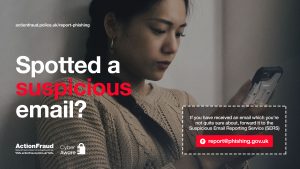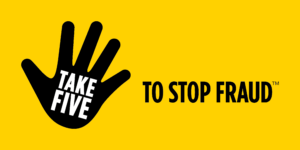Stay gas-safe this winter
Ashford Borough Council is urging the borough’s 130,000 residents to take steps to stay gas-safe in the home this winter, with a focus on the regular servicing of gas appliances.
Their advice, which is backed by the Kent Fire & Rescue Service, is not to take chances and to keep your family safe by following the following guidance.
“Don’t be the 1 in 4!” warns the experts
Seven million homes in the UK – that’s one in four households – have dangerous gas appliances, according to the latest figures from gas safety experts Gas Safe Register.
During the recent Gas Safety Week, the national body unveiled shocking statistics that lift the lid on bad habits that could threaten the safety of householders. It shows one in three people (31%) have used excuses to get out of having their gas appliances safety checked.
Gas Safe Register said nearly seven million homes in the UK have potentially dangerous gas appliances, including boilers, cookers and gas fires. If left unchecked, these faults can pose a threat to life from gas leaks, fires, carbon monoxide poisoning and explosions.
It says many homeowners have a ‘if it ain’t broke don’t fix it’ mentality as an excuse for skipping annual gas safety checks, even though this could be masking lethal faults.
Gas Safe Register is the official list of gas businesses registered to work legally on boilers, cookers and fires. By law, anyone working with gas must be listed on the Register. Visit https://www.gassaferegister.co.uk/find-an-engineer/ to find a registered business in your area.
Top tips for home safety
- Learn the six main symptoms of carbon monoxide (CO) poisoning – headaches, nausea, dizziness, breathlessness, collapse and loss of consciousness and teach them to others.
- Check gas appliances for warning signs that they are not working properly – lazy yellow flames instead of crisp blue ones, black sooty marks or stains on or around the appliance and high levels of condensation in the room.
- Fit an audible carbon monoxide alarm to alert you if there is carbon monoxide present.
- Don’t block air vents. They provide a flow of air for the safe operation of boilers and fires.
- Have all your gas appliances safety checked every year by a Gas Safe registered expert.
- If you suspect carbon monoxide poisoning, get some fresh air and leave the house quickly. See a doctor and if you are very unwell call 999 for an ambulance. The National Gas Emergency Helpline is available 24/7 on 0800 111 999.
- When using electrical items at home, including fairy lights this Christmas, keep the number of plugs in an adaptor to a minimum. Overloaded sockets can cause a fire.
- If you use an additional heater in the chillier months, remember to keep it well away from clothes, curtains and other materials that could catch fire.
- Plan an escape route so that you can get out of your home in the event of a fire.
- Check you have working smoke alarms on each level of your home and test weekly.
- In an emergency call 999.
Council housing inspections
For gas appliances the council own the Council arranges for a Gas Safe engineer to service the fire and boiler and undertake a safety check each year.
Tenants are responsible for safety checks on any gas appliances they own.
Tenancy agreements do not allow the use of portable gas heaters in council homes, due to concerns about the maintenance, safety and storage of combustible gas heaters. Used efficiently, gas central heating is the best and safest way to keep your home warm. Using alternative forms of portable heating, like electrical operated storage or convector heaters, can be more costly. See links below to find out more about grants to keep your home warm.
If you are in a rented home and feel improvements are needed to insulate and draught-proof the property contact your landlord. You can also contact us by email at privatesectorhousing@ashford.gov.uk to address issues relating to cold homes.
For details of private sector grants available to improve your property visit https://www.ashford.gov.uk/housing/grants/private-sector-grants/
Getting help with your home energy bills
Warm Home Discount: £140 annually off electricity bills for those eligible. Visit www.gov.uk/the-warm-home-discount-scheme
Winter fuel allowance: payments for pensioners and vulnerable £100-£300 annually. Visit www.gov.uk/winter-fuel-payment
Cold weather payments is a scheme run by the government from 1 Nov to 31 March every year, those eligible could receive £25/wk. Visit www.gov.uk/cold-weather-payment
KSAS, a KCC service for vulnerable or low income households who need help.
www.kent.gov.uk/social-care-and-health/care-and-support/benefits/home-essentials-in-a-crisis
Green Doctors: A charity which offers free advice on saving money on your energy bills. The charity provides help in understanding how to use energy and heating systems and understanding bills and accessing help for energy debt. Visit https://south.greendoctors.org.uk/
Debt assistance: If you’re struggling with debt find advice and help through Citizen
Advice www.citizensadvice.org.uk/debt-and-money/help-with-debt/
Grants to help pay off you energy debts.
Visit www.citizensadvice.org.uk/consumer/energy/energy-supply/get-help-paying-your-bills/grants-and-benefits-to-help-you-pay-your-energy-bills/










